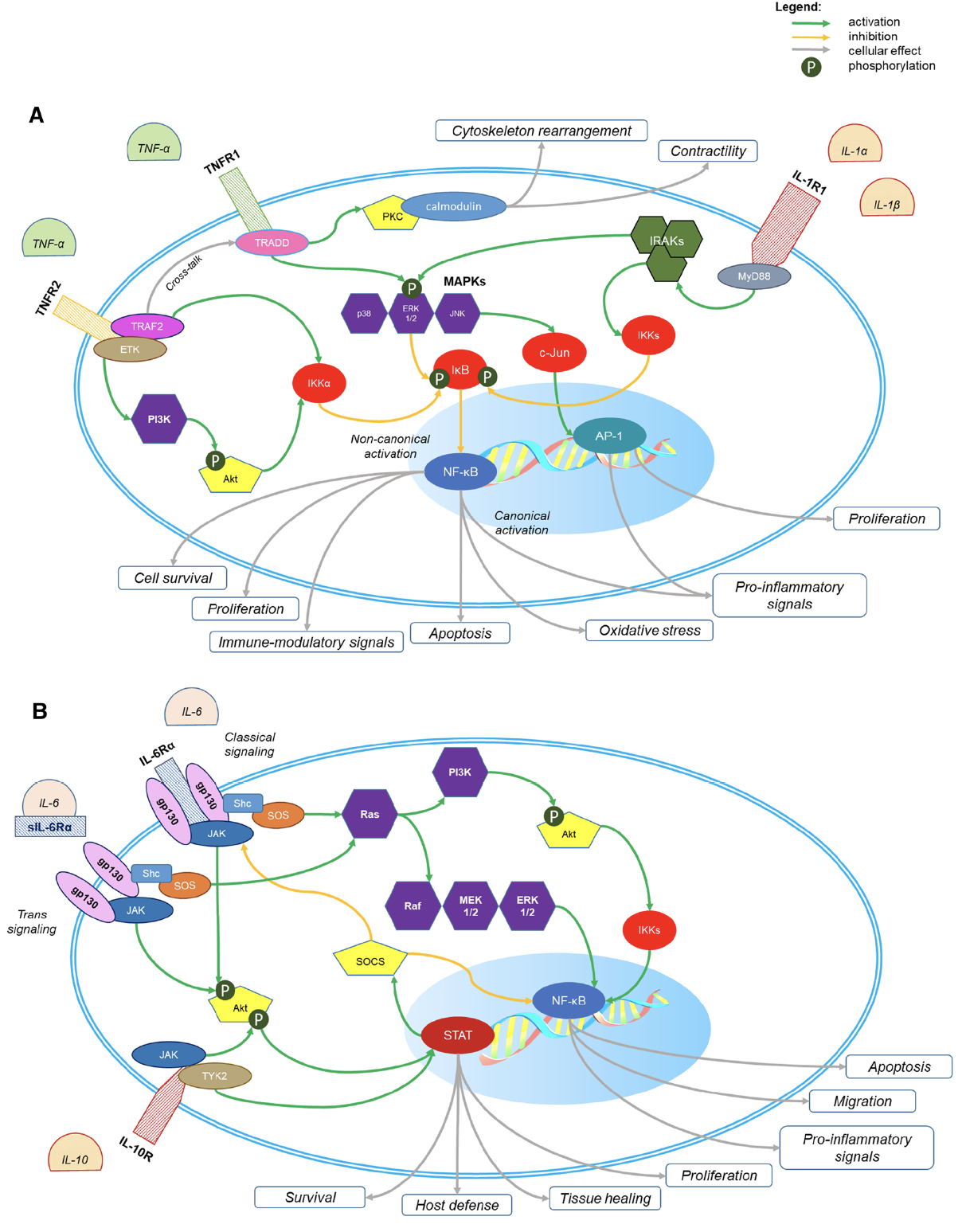Modulatory Role of Cytokines on Atherosclerosis, Myocardial Infarction, and Stroke

Cardiac and cerebral atherothrombotic complications account for substantial morbidity and mortality worldwide. In this context, inflammatory processes are crucially involved in the chronic process leading to atherosclerotic plaque formation and its deleterious sequelae. For this reason, modulation of inflammation is nowadays seen as a promising therapeutic strategy to counteract the burden of cardio- and cerebrovascular diseases. Being produced and recognized by both inflammatory and vascular cells, the complex network of cytokines holds key functions in the crosstalk of these two systems and orchestrates the progression of atherothrombosis. By binding to membrane receptors, these soluble mediators trigger specific intracellular signalling pathways eventually leading to the activation of transcription factors and a deep modulation of cellular function. Both stimulatory and inhibitory cytokines have been described and progressively reported as markers of disease or interesting therapeutic targets in the cardiovascular field. Nevertheless, cytokine inhibition is burdened by harmful side effects that will most likely prevent its chronic use in favour of acute administrations in well-selected subjects at high risk. In this review article, Luca Liberale and colleagues elegantly summarize the current state of knowledge regarding the modulatory role of cytokines on atherosclerosis, myocardial infarction, and stroke and also discuss the potential implication of these advances as therapeutic targets.